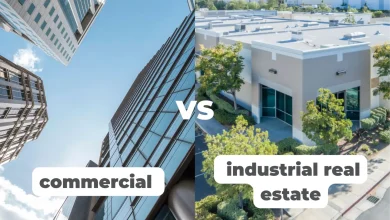The Effects of Chapter 7 on Your Credit Score Over Time

A Chapter 7 bankruptcy might offer instant relief from a significant debt load. Additionally, it stops all creditor collection efforts. It provides a way to pay off the debt and a new financial beginning. But there are a number of repercussions, especially with regard to your credit score. Therefore, before filing for chapter 7 bankruptcy, you should be aware of all the information, including how long it will be on your credit report and how it will impact your score.
We’ll learn more about Chapter 7 bankruptcy and how it affects credit score in this article. We’ll walk over how to rebuild your score as well.

Knowledge of Chapter 7 Bankruptcy
Liquidation bankruptcy, sometimes referred to as Chapter 7, requires you to sell your non-exempt assets and utilize the proceeds to pay back your creditors. Through a legal process, people or organizations can pay off the majority of their debt and start over financially. Certain assets are even exempt, such as your primary residence, vehicle, and personal effects. Your state’s laws will determine which assets are exempt. It is regarded as a last choice as you are unable to create any repayment arrangements with it.
But it affects your financial history for a long time. Even while it pays off the majority of debts, the long-term effects on your credit score and report may make it difficult for you to get credit cards, get loans, or make major purchases for years to come.
Chapter 7 Bankruptcy’s Effect on Your Credit
Impact on Your Credit Score Right Away
The first consequence of declaring Chapter 7 bankruptcy is that your credit score will drop. A decline of at least 100–200 points is to be expected. Compared to someone whose credit score is already low, someone with a higher score might see a much bigger decline. When a person files for bankruptcy, their credit score is affected since it shows that they haven’t been able to pay their debts.
Long-Term Effects of Chapter 7 Bankruptcy Filing
The long-term effects of Chapter 7 bankruptcy must be taken into account. It could stay on your credit record for ten years or more. It will serve as a warning sign for potential employers and lenders. Getting a personal loan, vehicle loan, or mortgage in the future will be difficult.
Rebuilding your credit score and obtaining credit will result in interest rates that are higher than the typical restrictions set by lenders.
How Much Time Does Your Credit Report Show Bankruptcy Under Chapter 7?
After the date of filing, Chapter 7 bankruptcy stays on your credit report for ten years. It will be accessible to everyone doing a credit check during this time, which may have an impact on your ability to get loans, rent an apartment, or even be eligible for specific positions in the market. Nonetheless, you can take the right actions to restore your credit since its effects will eventually lessen.
Techniques for Credit Reconstruction Following Chapter 7 Bankruptcy
Creating a Financial Plan and Budget
Making a financial strategy and budget is the first step. To take complete control of your finances and prevent future financial problems, you must examine how much money comes in and goes out each month. You must create a thorough budget that accounts for your income, essential costs, and any other noteworthy expenditures. To raise your credit score again, make an effort to pay your obligations on time. Even automated payments can be set up for them. Create an emergency fund as well to help you stay out of debt in case of an emergency.
Increasing Credit Score With Secured Credit Cards
Once your finances are in order, you can apply for a secured credit card. A cash deposit is necessary for a secured card; this serves as collateral and establishes your credit limit. Because it presents less risk to the issuer, this kind of card is simpler to obtain following bankruptcy. Making minor transactions with the card and promptly paying off the debt are crucial. Over time, this will assist you in raising your credit score. Just avoid applying for multiple credit cards at once, as this may negatively impact your credit score.
Watching for mistakes on your credit report
You must keep a close eye on your credit score after you begin the process of restoring it. To prevent any mistakes or inaccuracies, update all the information. Examine it thoroughly to identify any mistakes and take the required action to fix them right away.
Conclusion
Your credit score is significantly impacted initially when you file for Chapter 7 bankruptcy, and it frequently drops precipitously. As you work to restore your credit, the consequences may eventually subside, but this decline is not irreversible. Although the bankruptcy will stay on your credit report for a maximum of ten years, you can improve your credit score sooner than most people think if you practice responsible money management, which includes making on-time payments, keeping credit card balances low, and using credit gradually and sensibly.
FAQs:
1. What is the initial impact of Chapter 7 bankruptcy on your credit score?
Depending on your starting score, filing for Chapter 7 bankruptcy can result in a substantial decline in your credit score, frequently by 100 to 200 points or more. The reduction is likely to be more pronounced if your score was higher prior to filing.
2. How long does your credit report reflect Chapter 7 bankruptcy?
After filing, Chapter 7 bankruptcy can stay on your credit report for up to ten years. Your ability to obtain credit during that time may be impacted since prospective lenders will be able to see that you filed for bankruptcy ten years ago.
3.How soon after filing for Chapter 7 bankruptcy can I begin to rehabilitate my credit?
As soon as your bankruptcy case is dismissed, which usually happens three to six months after filing, you can start repairing your credit. Recovering requires prudent financial practices, such as using credit sensibly and making on-time payments.
4.Can I obtain a credit card following my Chapter 7 filing?
Indeed, soon after your discharge, you may be eligible for subprime or secured credit cards. Rebuilding your credit is made easier with secured credit cards, which demand a security deposit. Over time, you can raise your credit score by using them sensibly, paying them off in whole, and maintaining small balances.



